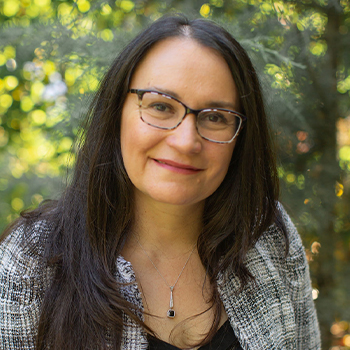“Don’t go to bed angry” is the most common advice given to couples, yet it’s also the most ineffective when it comes to relationship conflict resolution. This advice often leads to staying up late into the night, trying to resolve a conflict that likely started much earlier.
Why is this advice ineffective? Because often, sleeping on a relationship conflict or taking time apart can result in a better outcome. Let me explain why conflict is necessary in a healthy relationship.
Conflict in a relationship indicates that there is intimacy, meaning that you start to trust and know each other on a deeper level. You are showing your true self—your desires, beliefs, and wants—and these do not always align. In fact, according to Dr. John Gottman, a relationship expert, “Conflict really has a purpose and the purpose is mutual understanding.”
EMOTIONAL DEBT IN RELATIONSHIPS
When you avoid telling your partner what is important to you to prevent a relationship conflict, it’s like accumulating emotional debt. Little by little, this weighs on the relationship, creating resentment, which is the poison of healthy relationships. In the future, you may not want to be close to your partner, you may lose the desire for intimacy, and you may stop sharing your thoughts and feelings. Of course, it’s important to discern how to bring things up in a respectful and constructive way, but avoidance is not the answer.
HOW TO TURN CONFLICT INTO CONNECTION
REGULATE YOUR EMOTIONS
The first and most important step in conflict resolution is to learn to regulate your emotions. You can’t have a successful relationship conflict resolution if you’re emotionally dysregulated. You might wonder, what does being dysregulated mean? You are dysregulated if you exhibit behaviors such as defensiveness, screaming, blaming, threatening, wanting to escape, shutting down, or being unable to focus on the conversation.
Dr. Gottman calls this being flooded.” To stop the flood, start by noticing your body—sweating, tension, rapid heartbeat—these are all signs that you’re being flooded. The best thing to do is take a break for about 20 minutes, take a walk, listen to music, or do something to distract yourself from the conflict.
USE CURIOSITY
After regulating your emotions, take a U-turn and use curiosity by asking yourself, “What triggered me?” When you bring up sensitive issues with your partner, it’s easy to get triggered and become emotionally reactive. Here are some common triggers in a relationship conflict: feeling judged, criticized, out of control, lonely, not listened to, excluded, ashamed, attacked, etc.
Communicate your triggers to your partner and ask them the same question. This will help both of you understand each other better and manage relationship conflicts more effectively in the future.
VALIDATE YOUR PARTNER
Validation in relationships is not the same as agreement. Many people confuse these two concepts. Validation means emotionally connecting with your partner’s experience—stepping into their world and understanding why they feel the way they do. As irrational as their experience might seem at first, once you truly connect with their emotional world, it will begin to make sense. Validation can be a powerful tool to turn relationship conflict into connection.
You and your partner had very different experiences growing up, and those experiences shaped how you see and interact with the world. That’s what you need to validate, and for that reason, it is impossible to validate if you’re dysregulated. This is why regulating your emotions is crucial in couples’ conflict resolution.
BE FLEXIBLE
Once there is validation and understanding, you and your partner can work on a constructive plan to resolve the issue you are having relationship conflict about. You need to identify your negotiables and non-negotiables, share them with each other, and then find the best outcome for your relationship.
SEEKING THERAPY FOR RELATIONSHIP
If you’re experiencing ongoing couple conflicts and struggling to resolve them on your own, seeking couples therapy or relationship counseling can provide valuable tools and strategies. A relationship therapist can help you and your partner navigate conflicts, improve communication, and strengthen your emotional connection.
By addressing relationship conflicts proactively and with the right support, you can transform challenges into opportunities for deeper intimacy and a more resilient partnership.


